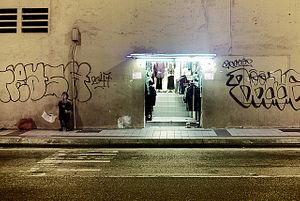If international headlines are any kind of barometer, it’s clear that the ruling Barisan Nasional (BN) is deflating Malaysia’s credibility: Prime Minister Najib Razak botched the initial efforts in the search for the missing aircraft MH370; Malaysian high courts ruled in favor of barring the word “Allah” from non-Muslim religions; the U.S. Department of State gave Malaysia (along with Thailand) the lowest grade for countries fighting human trafficking; and a few days ago a parliament member inappropriately tweeted a comparison between the German national soccer team and Hitler, apparently for “fun.” Put together, these events create an unfavorable and widely accepted image of the BN as a thoughtless, backwards party.
But the ruling party, which has held power longer than any other party in the world, isn’t done yet.
On July 3rd , Federal Territories Minister Datuk Seri Tengku Adnan Tengku Mansor announced that soup kitchens will not be allowed to operate within 2 km of Kuala Lumpur’s city center, which has the highest concentration of homeless. Official letters have not been sent to soup kitchens, yet they were expected to start closing down Monday. Either the announcement was premature, or the carrying out of this controversial mandate is illogical.
Included in Tengku Adnan’s announcement was a common claim negating the benefits of soup kitchens. “This activity just encourages people to remain homeless and jobless.” A common thread throughout international conservatives is the wastefulness of government, and ultimately taxpayer spending, arguing safety nets actually serve as a disincentive to work. But rarely do conservatives criticize the charity work of non-profits.
Kuala Lumpur is home to 13 NGO-run soup kitchens and only one government-run shelter, meaning the new law will lead to an unprecedented closure of privately funded and run organizations. A street survey conducted last April by Buddhist-run Kechara Soup Kitchens suggests there are roughly 1,500 homeless in the capital. Such a brazen attack on KL’s most vulnerable has not gone unnoticed.
Unfortunately, Tengku Adnan’s move is in line with the BN’s shoddy reputation on social programs. In 2012, a government initiative to increase employee rights and benefits was shelved due to business owner backlash. It has yet to be addressed. Even more arcane than Malaysia’s crippling red tape is the existence of the Destitute Persons Act of 1977.
“The law provides government officers with the powers to take into custody, detain (up to three years) and otherwise intervene in the lives of any Malaysian deemed to be ‘destitute.’ Persons detained are kept against their will in facilities run by the Ministry of Women, Family and Community Development.”
The BN is not without its accomplishments. The party can take credit for broadly improving Malaysia’s economy. In 2012 GDP rose by 5.6 percent, benefits for foreign investors are regularly being enacted, and infrastructure growth remains a top priority. But by no means should these accomplishments overshadow the BN’s scathing corruption, problematic human rights record, and grip on political power.
Since independence in 1957, the BN has played a dominant role in politics, but the 2013 general election garnered BN’s smallest margin of victory in history, winning only 60 percent of parliamentary seats and losing the popular vote to the opposition coalition, Pakatan Rakyat. If Najib continues to isolate portions of the population rather than increasing opportunity for the entire population, the BN will likely take a historic blow in the next election.
As one soup kitchen volunteer puts it, “You may be blessed today, you drive your fancy car, live in your big house and eat delicious food all day, every day…I sincerely hope you learn a few lessons in humility before life teaches it to you the hard way.”
Karam Singh Sethi spent 2013 teaching English in rural Malaysia on a Fulbright Scholarship. Follow him on Twitter @KaramSinghSethi.
































